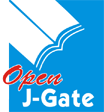Main Menu
Home
About Us
Call For Paper
Chief Patron
Patron
Advisory Board
International Editorial Board
Technical Advisors
Associate Editor
Reviewers
Conference Organizers
 Generate E-Certificate
Generate E-Certificate
 Past Issue
Past Issue Other
Special Issue
Indexing and Listing
Authors Guidelines
Past Issue
Past Issue Other
Special Issue
Indexing and Listing
Authors Guidelines
 Download Paper Template
Publication Fee
Download Paper Template
Publication Fee
 Online Payment
Review Process
Copyright Form
Publication Ethics
Contact Us
Admin
Disclaimer
Online Payment
Review Process
Copyright Form
Publication Ethics
Contact Us
Admin
Disclaimer
 Generate E-Certificate
Generate E-Certificate
 Past Issue
Past Issue Other
Special Issue
Indexing and Listing
Authors Guidelines
Past Issue
Past Issue Other
Special Issue
Indexing and Listing
Authors Guidelines
 Download Paper Template
Publication Fee
Download Paper Template
Publication Fee
 Online Payment
Review Process
Copyright Form
Publication Ethics
Contact Us
Admin
Disclaimer
Online Payment
Review Process
Copyright Form
Publication Ethics
Contact Us
Admin
Disclaimer
Date/Time
News and Events
Create & Edit Pdf

Serene Docs
Published Books
Browse Books
Dates for Author
 Call for Papers
Call for PapersFebruary 2026
Volume 16, Issue 02
Send manuscripts to:
[email protected]
For UGC CARE, Scopus and Web of Science Publication:
Whatsapp: +1 469-844-0367
India Helpline
Indexing
ISSN: 2320-0294 |
Volume 8, Issue 7 (July 2019 )
| PARTICULAR | Page No. |
|
PULAKESH SEN
Abstract: Orders and types of entire functions have already been investigated by many authors in the field of advanced complex analysis. Sum and product theorems on order and type of entire functions have been established and extended in many ways. In this paper we wish to establish some of the basic properties over sum and product theorems on order (lower order), type (lower type) and weak type of bi-complex entire functions in the field of advanced bi-complex analys Download full Lenght Paper...... |
1-21 |
|
R. SUMATHI
Abstract: This paper highlights about the theory of domination in graphs, more specifically on the characteristics of the split domination number of an Arithmetic Graph and has obtained important results. The split domination of these arithmetic graphs have been studied as it enables us to construct graphs with a given split domination number in a simple way. We have obtained an upper bound for the split domination number of the Vm graph as r+1,where m is a positive integer and is the canonical representation, where are distinct primes and m = 1 2 r a r a 2 a p1 ,p .......p is the canonical representation, where, p1,p2,p3,….pr are distinct primes and a‟i s >1. Download full Lenght Paper...... |
22-28 |
|
CARLOS AUGUSTO DO NASCIMENTO OLIVEIRA
Abstract: The Brazilian Standard of Plugs and Sockets for domestic use was created with the purpose of unify the electrical connections used inside the residences. In addition to giving consumers more security due to the new design, the proposed changes also lead to a reduction in the use of adapters and extensions. The standardization of the plugs and sockets has generated changes and a great adaptation in the electrical materials industries of the country. Production processes, quotas and quality control procedures had to be reformulated and revised. This work makes an analysis of the conformity of the dimensions of plugsand socketswith the information defined in the new Brazilian standards. In the methodology used are the use of measurement systems with coordinate measuring machine to verify parallelism and perpendicularity and the caliper and micrometer to check the measures of the pins, holes and others parameters. The results are confronted with the specifications of the current regulatory standard, where conflicts between the connections found in the retail market and the specifications defined in ABNT NBR 14136 v4 2013 are highlighted. Download full Lenght Paper...... |
29-40 |
|
S VENKATA RAMI REDDY
Abstract: The combined influence of Heat source, Soret and Dufour effects on transient convective heat and mass transfer flow of a micro polar fluid through porous medium. The non linear coupled equations governing the flow heat and mass transfer flow have been solved by Employing Galerk in finite element technique with quadratic approximation polynomials. The velocity, micro rotation, temperature and concentration have been discussed for governing parameters. The skin friction, the rate of heat and mass transfer have evaluated numerically for different parametric variations. Download full Lenght Paper...... |
41-65 |
|
CHUNYONG WANG
Abstract: Since the classical attribute reduction of rough sets is difficult to obtain, it is popular to search attribute reduction based on information entropies. In this paper, an incremental method to update Shannon conditional entropy for dynamic information systems with varying objects is studied. Then an incremental attribute reduction algorithm for decision table with varying object set is proposed. A numerical experiment is given to show the efficiency of the new method. Download full Lenght Paper...... |
67-77 |
|
DR. SHASHI KANT PARDESHI
Abstract: Multiplicity of food laws, standard setting and enforcement agencies pervades different sectors of food, which creates confusion in the minds of consumers, traders, manufacturers and investors. Detailed provision under various laws regarding admissibility and levels of food additives, contaminants, food colors preservatives, etc. and other related requirements have varied standard under prevention of food adulteration act 1954 and rules 1955. The standards are rigid and non-responsive to scientific advancement and modernization. In view of multiplicity of laws, their enforcement and standards setting as well as various Implementing agencies are detrimental to the growth of the nascent food processing industry and is not conducive to effective fixation of food standards and their enforcement. Without food regulations no country can ensure food safety, and India has therefore legislated the Food Safety and Standards Act, 2006 (FSSA). All previous food laws that existed prior to 2006 like the Prevention of Food Adulteration Act were repealed once the FSSA was implemented. Food safety and standards Act (FSSA), 2006 is an Act enacted to keep up with the changing needs / requirements of time and to consolidate the laws relating to food and to establish the Food Safety and Standards Authority of India. Government of India enacted a central legislation called as “food safety and standards Act 2006, Rules 2011and Regulations 2011”. It has intention of providing safe, hygienic and wholesome food for the citizen’s of the country. The act aims to establish a single reference point for all matters relating to food safety and standards by moving from multilevel departmental control to a single line of command, to this effect, the act establishes an independent statutory authority the food and standards authority of India with head office at Delhi. India’s long term is to have a strong and proactive system of quality assurance is based on statutory and regulatory authorities, consumer awareness and legal enforcement where required Download full Lenght Paper...... |
78-91 |













